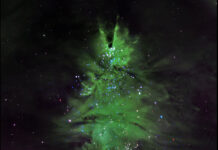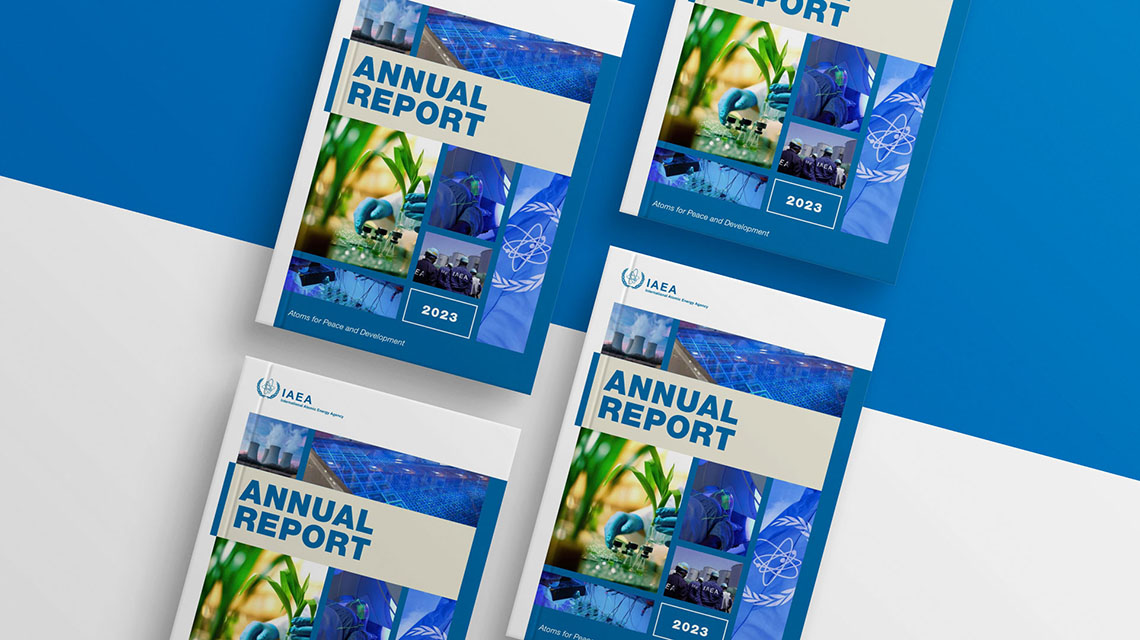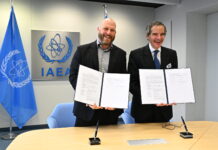The 2023 IAEA Annual Report: A Year of Progress and Innovation
The International Atomic Energy Agency (IAEA) has released its 2023 Annual Report, a comprehensive document detailing a pivotal year for the agency. This report, now accessible online in all official United Nations languages, was presented to the United Nations General Assembly by the IAEA’s Director General, Rafael Mariano Grossi. The document captures the significant advancements and ongoing initiatives of the IAEA, illustrating its commitment to addressing global challenges through nuclear science and technology.
Atoms4Food: A New Initiative to Combat Global Hunger
One of the most notable developments in 2023 was the launch of the Atoms4Food initiative. Spearheaded by Mr. Grossi, in collaboration with Qu Dongyu, Director General of the Food and Agriculture Organization of the United Nations, this program aims to leverage nuclear techniques to enhance food security and nutrition. Atoms4Food builds on the IAEA’s extensive experience in assisting countries to use nuclear technology to address hunger and malnutrition. By integrating nuclear science with agricultural practices, the initiative seeks to provide sustainable solutions to food scarcity, particularly in regions vulnerable to food insecurity.
Continued Efforts in Cancer Care and Environmental Protection
The IAEA has sustained its commitment to existing projects such as the Rays of Hope initiative, which focuses on closing the gap in cancer care in low- and middle-income countries. This initiative is crucial in providing equitable access to cancer treatment and care, ensuring that even under-resourced nations can offer essential medical services to their populations.
Additionally, the Zoonotic Disease Integrated Action initiative (ZODIAC) remains a priority, with the aim of preventing future pandemics by monitoring and controlling diseases that can transfer from animals to humans. This program underscores the IAEA’s role in public health and safety, utilizing nuclear techniques to detect and manage potential outbreaks before they become widespread.
The NUTEC Plastics initiative, another key project, addresses the pressing issue of global plastic pollution. By developing innovative solutions for recycling and managing plastic waste, the IAEA is contributing to environmental sustainability efforts worldwide.
Nuclear Science and Technology for Global Advancement
In his address to the UN General Assembly, Mr. Grossi emphasized the IAEA’s role in overcoming global challenges through nuclear science and technology. With partnerships spanning 178 Member States, the agency is at the forefront of advancing healthcare, agriculture, and energy systems. This commitment to innovation demonstrates the potential of nuclear technology to drive sustainable development and improve quality of life across the globe.
Transparency and Safety in Nuclear Practices
A significant portion of the IAEA’s work in 2023 focused on ensuring transparency in nuclear practices. The discharge of Advanced Liquid Processing System (ALPS) treated water from the Fukushima Daiichi nuclear power station was a key area of oversight. In July, Mr. Grossi presented a comprehensive report to Japanese Prime Minister Fumio Kishida, affirming that the discharge approach met international safety standards. This transparency is vital in maintaining public trust and ensuring the safe use of nuclear technology.
Support for Ukraine’s Nuclear Safety
The IAEA has been actively involved in supporting Ukraine’s nuclear safety and security. Throughout the year, a total of 86 missions involving 187 staff members were deployed to Ukraine, underscoring the agency’s dedication to maintaining safety standards at the country’s nuclear sites. In May, Mr. Grossi outlined five principles for protecting nuclear safety and security at the Zaporizhzhya Nuclear Power Plant to the UN Security Council, highlighting the IAEA’s ongoing efforts to ensure the integrity of nuclear facilities in conflict zones.
Nuclear Energy’s Role in Climate Change Mitigation
A landmark moment for the IAEA was the endorsement of nuclear energy as a low-carbon source at the United Nations Climate Change Conference (COP28) in Dubai. This recognition marks a significant step in addressing climate change, as nuclear energy offers a sustainable alternative to fossil fuels. In conjunction with this, the IAEA launched two interconnected mechanisms: the IAEA Platform on Small Modular Reactors (SMRs) and their Applications, and the Nuclear Harmonization and Standardization Initiative. These programs aim to facilitate the safe and timely deployment of SMRs, which are smaller, more flexible nuclear reactors that can be used to enhance energy security while supporting climate goals.
Enhancements in Nuclear Security and Gender Equality
The IAEA’s laboratories in Seibersdorf marked a milestone with the completion of fundraising for the renewal of the Nuclear Application Laboratories (ReNuAL) initiative. Furthermore, the opening of the Nuclear Security Training and Demonstration Centre signifies a robust effort to equip Member States with the necessary tools to combat nuclear terrorism and crime.
In terms of gender equality, the IAEA celebrated significant achievements in promoting the role of women in the nuclear sector. By the end of 2023, the IAEA Marie Skłodowska-Curie Fellowship Programme had supported 560 fellows, while the Lise Meitner Programme provided career advancement opportunities for women in the nuclear field. Achieving gender balance in senior management positions further underscores the agency’s commitment to diversity and inclusion.
Advancements in Fusion Energy
Another exciting development was the launch of the World Fusion Energy Group in 2023. This initiative aims to bring together stakeholders to advance the development and deployment of fusion energy, a potential game-changer in the quest for clean and abundant energy. Fusion energy, which replicates the process that powers the sun, promises to be a safe and sustainable energy source once fully developed.
Conclusion
The 2023 IAEA Annual Report is a testament to the agency’s multifaceted efforts in leveraging nuclear science and technology to address some of the world’s most pressing challenges. From enhancing food security to promoting sustainable energy solutions and ensuring nuclear safety, the IAEA continues to play a pivotal role in fostering global development and security. For more detailed insights into the IAEA’s activities over the past year, the full report is available online in multiple languages, offering a comprehensive overview of the agency’s impactful work.
For more Information, Refer to this article.


































